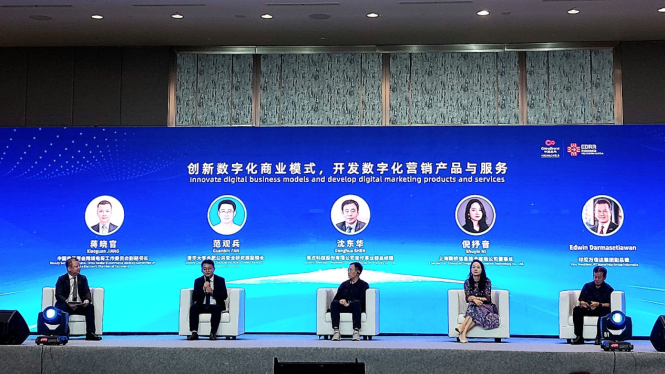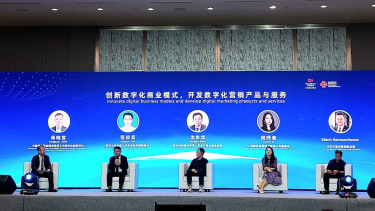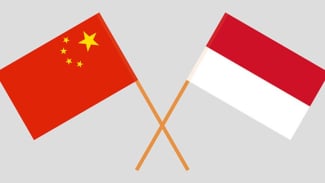Indonesia, China Establish 'Double-wheel Drive' Economic Cooperation
- Arianti Widya
Jakarta – Indonesia and China celebrate the 10th anniversary of the establishment Comprehensive Strategic Partnership. In order to further promote the economic and trade cooperation to go deep and solid between the two countries, the "China-Indonesia Economic, Trade and Investment Forum" was successfully held in the JIEXpo, Kemayoran on October 19.
This Event was co-hosted by Council for the Promotion of International Trade Shanghai (CCPIT Shanghai) or Chamber of International Commerce Shanghai, Trade Development Bureau of the Ministry of Commerce of the People's Republic of China, and KADIN Indonesia Industry, with special support from Shanghai Integrated Service Center for the Belt and Road Initiative and the Shanghai Integrated Service Center for Enterprises Going Global.
Chairman of CCPIT Shanghai, Minhao Zhou
- Press release
Chairman of CCPIT Shanghai, Minhao Zhou said that there is a long history of friendly exchanges between China and Indonesia. One is for this time through the Regional Comprehensive Economic Partnership (RCEP) which has come into force in Indonesia in early 2023.
"It's believed that joints efforts in the effective implementation of the RCEP will establish a new pattern of 'double-wheel-drive' economic cooperation in the Region and elevate the economic, trade and investment cooperation between the two countries to a new level," He said during in a statement, on Thursday.
"CCPIT Shanghai will continue to play its linking role as an international economic and trade bridge to make greater contributions to the promotion of building an open and win-win world economy," Zhou continued.
As information, CCPIT Shanghai focuses on promoting trade, investment, economic and technological cooperation between Shanghai and the rest of the world and has special taskforces in the fields including but not limited to international conventions and exhibitions, trade and investment promotion as well as commercial and legal services.
In the same occasion, Deputy Permanent Committee Chamber of Industry of KADIN Indonesia, Widiyanto Saputro said that Indonesia needs to change various indicators to lead as a high-income country.
"Hopefully, by 2038 we will have moved from a middle-income country to a high-income country," Saputro remarked.
Deputy Permanent Committee for Industry, Kadin Indonesia, Widiyanto Saputro
- pre
According to Saputro, the key to this development lies in two agendas that are being pushed by the Indonesian government, namely Industrial Downstreaming and the development of "Multi-player effects" from the advancement of Indonesia's local industries.
On the Industrial Hilirisation front, Indonesia has already proven results since the inception of the project in 2003 through restrictions on tin ore exports, he continued.
This downstreamization can increase the country's revenue while creating jobs. The second important thing to achieve is through the "multi-player effect" which is pursued by applying Domestic Component Level (TKDN) to mandatory products.
"In almost two years, 40,000 products have been certified above 25%, and 27,000 of them have local content levels above 40%, but this is only 5% of the total number of products purchased by the Indonesian government," Saputro revealed.
Moreover, China and Indonesia have cooperated with each other in a mutually promoting and inspiring manner through continuous cooperation and joint efforts in solving problems.
Both countries are not only moving towards each other on their respective paths to modernization, but also setting an example of cooperation for other developing countries and emerging economies to achieve development and prosperity together.































